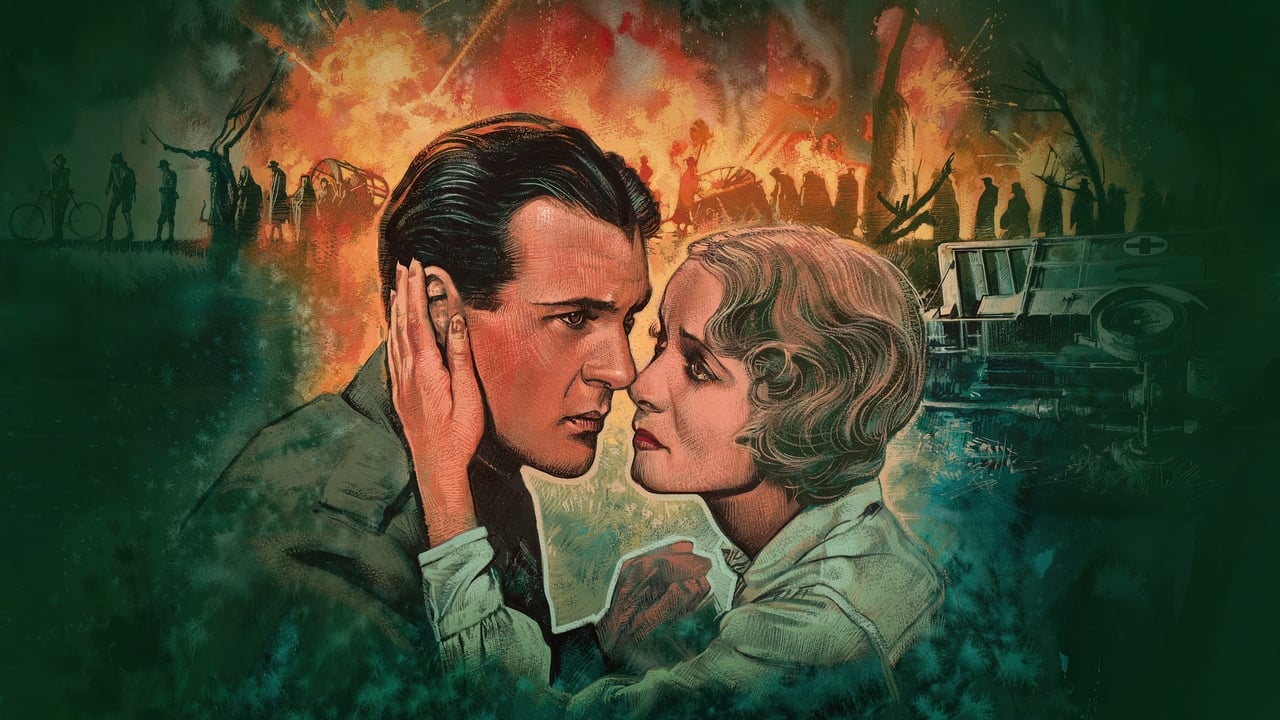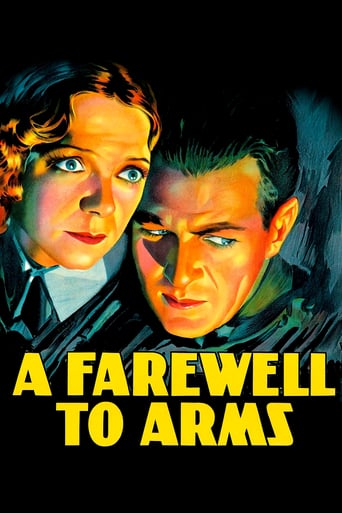

Plot so thin, it passes unnoticed.
... View MoreThis movie was so-so. It had it's moments, but wasn't the greatest.
... View MoreIt isn't all that great, actually. Really cheesy and very predicable of how certain scenes are gonna turn play out. However, I guess that's the charm of it all, because I would consider this one of my guilty pleasures.
... View MoreIf you're interested in the topic at hand, you should just watch it and judge yourself because the reviews have gone very biased by people that didn't even watch it and just hate (or love) the creator. I liked it, it was well written, narrated, and directed and it was about a topic that interests me.
... View MoreThe movie achieves evoking pity and suggesting the secret, unknown, unsuspected abyss of a life, the life of the one near you (which is the very great psychology of the eponymous novel, a young person's work about a youngster's experiences during the war), by giving an insight of Katherine's wasted and unglamorous life, and thus making her authentically mysterious, and giving a sense of the dignity and sacred mystery of a being, and this in her humbleness; the story is one of pity and remorse and sadness. With the acting, we are on the threshold of the sound cinema.Now Helen Hayes' acting is very much unlike what nowadays' audiences are accustomed to, in an entirely different key, but it's a great role, and, as I wrote, mysterious and heartrending; stylistically, it belongs to the symbolism and extroversion, the symbolical extroversion necessary for the many years of the silent cinema, a leftover of the silent age of the screen, suddenly made obsolete by the sound.Cooper is very unlike my idea of the novel's protagonist, and so is his acting, sometimes like doing a Valentino impersonation, though not always, as in the beginning of the scene where Ferguson foretells their death, when he's a gallant, nonchalant officer, perhaps also in the 1st few scenes, when he gropes a couple of nurses, but before he falls in love with her, and it has been my impression that the two lead actors didn't enjoy very much each other, as they should have for most of the movie; but Cooper was naturally righteous and dignified, very protestant, and his character should of been a bit more earthly (like Powell, perhaps?). Then, at the end, he communes with a brioche, and such things remind of the chilly religion in Ford's and other movies; here, they show a priest, and a secularized Eucharist, yet it's a very protestant movie. Menjou as the jealous, duplicitous surgeon decided to wreck his comrade's life is by turns demonic and annoying.One example of wry humor is when the scene of the 1st kiss (of Cooper and Helen H.) cuts to a bedroom scene of Cooper and Menjou.Cooper is supposed to be less handsome than Menjou, who seems a lecherous oldster.Both Cooper and Helen Hayes play their roles according to the mainstream style of acting of the age, and he hasn't enough time for the months of their peaceful living, the life they had together needed to be given more time on screen, instead the script picks the eerie priest ; she had the right idea of unglamorous humbleness. Her role is that of a very unhappy woman, as one can gather at least from her deathbed words to him.So, Helen Hayes' role is the better one.
... View MoreA very curious coincidence. Watching, in luminous black and white cinematography, Adolphe Menjou in army uniform walk around the rooms of some fairly palatial château requisitioned by the military in WW1, instantly recalled an all but identical scene shot some 25 years later (same actor, same war, same costume, b&w photography, setting, character, adjacent country). It seemed far too close to be just a coincidence - did director Stanley Kubrick make a deliberate connection in his 1957 film "Paths of Glory"?But what an extraordinary difference in tone however between the two films? A Farewell to Arms is surely exclusively a traditional woman's picture, classy soap in fact. Shirtless young star Cooper - eye-candy personified - has an untroubled war, fussed over by a minor army of female nurses, and, presumably pre-Hays code, quite explicitly takes the virginity of a young nurse he has not long met; and, central drama in the film, nature takes its course. Tragedy when it comes is played out in comfort, the best medical attention, where the loved ones are together and able to say their full good byes in dignity and privacy.In contrast the grittiness of WW1 drama "Paths of Glory", the blistering attack on officer ambition at the cost of the common soldier, the cynicism - unsurprisingly too strong to be shown where it was set: France - had few equals in its tone of moral indignation. Its central character, played by Kirk Douglas, held to the flames of forced moral choice. IMDb gives it thoroughly deserved 8.5, this film just 6.6. Hovering in judgement too over A Farewell to Arms is the authentic story of front-line WW1 nurses "Testament of Youth" where duty and sacrifice was the iron rule, not fluffiness.So how did this silly soap-fest come to be made just 15 years after the events depicted? Europe was scarred by WW1, France by its immense loss of fighting men and suffering of civilians caught in the fighting. Hollywood in 1932, it seems, just sought bums on seats. History was safely in its graves and could be left to turn as it wished. Was Paths of Glory Kubrick atoning for Farewell to Arms? I strongly suspect it was."what does this war mean to me? What does anything mean to me? I must find her"
... View MoreFrank Borzage's 1932 version of "A Farewell To Arms" has the distinction of being the first film adaptation of an Ernest Hemingway novel. It's more Hollywood than Hemingway: Long blankets of dialogue are condensed, sharp edges softened, and the romance between Lt. Henry and Catherine made into something more befitting Douglas Sirk than the unsentimental Papa. Yet a surprising amount of the novel's spirit does survive the transition.In a story not much different than what you might have read in high school, Lt. Henry (Gary Cooper) is an American ambulance corpsman serving with the Italian Army as it fights the Austrians along the Piave, a bloody backwater campaign of World War I. Henry meets nurse Catherine Barkley (Helen Hayes) and they quickly fall in love. But the violence of war, and the interference of friends like Capt. Rinaldi (Adolphe Menjou), threaten to tear them apart.The differences between book and movie are more in the matter of treatment than storyline. When Catherine and Lt. Henry first meet, they talk about her former lover, a war casualty. In the film, she says "If I had to do it all over again, I'd marry him". In the book, though, Catherine wasn't regretting sending him off to war unmarried, but without their having had sex.Yet a minute later, her lines come directly from the book, Catherine noting her daydreams about her old lover turning up at her hospital with a saber cut, then adding: "He didn't have a saber cut, they blew him to bits." For Hollywood, violence was always easier material than sex.Since this is a film made before the inhibiting Hays Code (Will, not Helen), Borzage and his writers are able to get away with a bit more than they would have just a couple of years later. Catherine and Henry still make love, and she gets pregnant.There IS a lot of Hemingway here. Catherine is a still somewhat mixed-up woman who hates the rain "because I see myself dead in it". The folly of war is openly expressed. "If nobody would attack, the war would be over," one soldier muses. Lt. Henry is wounded, and embarrassed because it happened while he was eating cheese. Even some small exchanges survive, like one between Lt. Henry and a nasty nurse.She: "Pity is wasted on you."He: "Thank you."But the film also strikes out for its own territory, successfully in the case of building up the role of Capt. Rinaldi. Menjou, who had been a real ambulance corps captain in World War I, creates a marvelously ambiguous figure, a cheerful cynic who befriends Henry and is put out by the romance with Catherine. "Why don't you be like me?" Rinaldi asks his "war brother". "All fire and smoke. Nothing inside."Rinaldi's role here is a change from the original story, a gamble by Borzage and writers Benjamin Glazer and Oliver H. P. Garrett that pays off, devising some needed tension to the central storyline and underscoring the core message of the rottenness of war. If it wasn't for war, Rinaldi might value something more than his next bottle or bedpartner, and Menjou, in a final triumphant moment, lets you know it.Pacifism, in movies as in life, only takes one so far. The film makes a mistake near the end by more consciously making a stand as an anti-war film, with much hysteria, bells ringing, even Cooper chanting "Peace...peace". It made those points much better as sidenotes, like an opening tracking shot where a seemingly sleeping soldier is revealed to be dead, or later on when Cooper trudges through a muddy path and notices the corpse everyone's been walking on. By contrast, too much of the movie's finale is played for the cheaper seats, and doesn't stand up today.But the film does stand up better than many later Hemingway adaptations, with its strong cast, inspired tracking shots, and a mostly successful effort by Borzage to translate Hemingway's terse prose style into film. What you get is a short but deep examination of life during wartime.
... View MoreHelen Hayes is a World War I nurse who falls for wounded soldier Gary Cooper. The war, and Adolphe Menjou, threaten to come between them...This film features some startling, indelible images. The acting is also first rate. Mr. Cooper and Ms. Hayes make their characters' courtship very believable - with performances transcending what could be acted, or shown on-screen, at the time. Their closing scene is classic. Mr. Menjou leads a strong supporting cast; interestingly, his interest in Cooper looks highly ambiguous, intentional or not. Arguably, Menjou's character shows more interest in him than her.The story is just a little too soapy; and, it lacks a certain cohesion. It's unsteady, at times. Yet, director Frank Borzage elicits some dazzling performance and images in "A Farewell to Arms".Peace. ******** A Farewell to Arms (12/8/32) Frank Borzage ~ Helen Hayes, Gary Cooper, Adolphe Menjou, Mary Philips
... View More